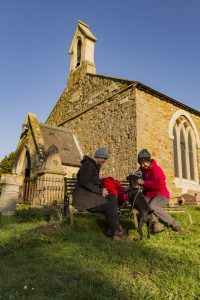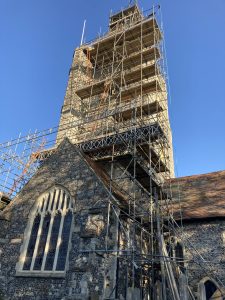A five point plan to secure the future of the UK’s church buildings has been set out by the National Churches Trust.
1. Prioritise the maintenance of church buildings.
It is often more cost-effective to look after historic churches through regular maintenance rather than having to undertake often expensive structural repairs because the condition of a building has been allowed to deteriorate.
The funding paradigm should therefore move away from repair and replacement to maintenance and conservation.
New ways should also be found to help the volunteers who look after church buildings to keep them in good repair. The National Churches Trust’s ‘MaintenanceBooker’ website, launched in February 2017, shows how new technology can make it easier to get professional help to maintain church buildings.
2. Make more churches centres for the community.
More churches need modern facilities, such as toilets, kitchens and heating. Modern facilities mean that church buildings can be used as venues for the arts, leisure, social action and other community activities and can host facilities such as post offices and libraries.
The use of church buildings as ‘community hubs’ has the strong support of the public. 83% of British adults think that churches, chapels and meeting houses play an important role for society as they provide a space in which community activities can take place, according to the National Churches Trust’s December 2016 ComRes opinion poll on church heritage.
3. Put churches firmly on the visitor and tourist map.
Churches, chapels and meeting houses are treasure houses of heritage and history and much more should be done to help churches attract visitors. As well as bringing new people through the doors, attracting visitors brings with it additional income through donations and gift purchases.
The National Churches Trust’s ExploreChurches website, launched in November 2016 and developed in close co-operation with partners in the tourism, heritage and church sectors, provides the UK with a high quality website for church visitors and tourism.
4. Create a one-stop shop for churches applying for funding for repairs and maintenance.
The UK’s churches will always require funding from a variety of sources to pay for repairs, maintenance and new facilities. But churches seeking funding have to navigate a complex web of grant-giving trusts, foundations and heritage organisations to access the money they need.
The church heritage sector should streamline the grant application process, possibly through creating a funding portal. This would allow churches to submit one application to reach as many potential funders as possible.
5. Open church buildings every day.
Church buildings need to be open every day so the public can enjoy their beauty, history and sense of prayerfulness.
There is still a widespread view that churches need to be kept locked to prevent theft or vandalism. But an open church can often be safer as the local community then becomes more engaged with the building.
http://www.nationalchurchestrust.org/node/6911





